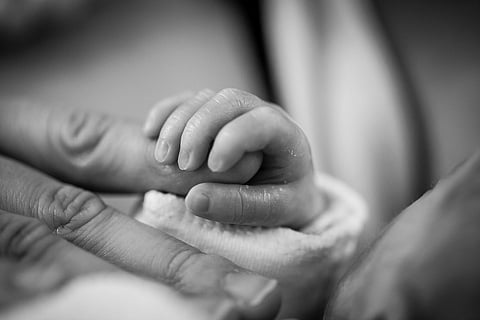Delivering Babies Under The Fear Of Death, Disease In Times Of COVID19
The mothers-to-be must be quite apprehensive about their delivery and the emotional complications involved therein. Whether they would see a normal delivery or it will be Caesarian one, they have doubts, whether they will be given admission in the hospital or will it be a homely affair. God knows. The reasons about being skeptical is that even if you have planned and marked the dates for delivery then also things may not go the way as planned. The facilities at the hospital may not be accessible on the D-day.
COVID pandemic has only added to the worries and woes. God forbid but if the expecting mother is on the way to the hospital in labour pain and at the very same time the hospital gets quarantined because a Covid case stepped in then the likely trauma of everyone can very well be foreseen.
The United Nations Children’s Fund (UNICEF) had put up a warning regarding the same. It stated that the pregnant ladies and babies who are born during Covid 19 period are threatened by prevailing health infrastructures and disruptions in services. Having said so, UNICEF also expected that around 116 million babies will be born during Covid-19 pandemic.
The disruptions in life-saving health services including care of newborns and pregnant mothers may put them at very high risk. The suggestions and advices are already being flashed that pregnant women must observe the precautions to avoid any and all kind of infections including COVID -19. This is critical to follow as around 1 pregnant woman or a newborn died every 11 seconds which otherwise could have been prevented.
It means that the health workers must be trained and equipped with tools and medicines to handle any complications during pregnancy and delivery. And all this must be done with empathy and care.
Interesting and eye-opening delivery cases have come up during Covid-19 pandemic.
While on one hand a 32-year-old Covid-19- positive woman gave birth to a healthy female baby at Pune Municipal Corporation’s (PMC) Sonawane Hospital, another 24-year-old woman, who was cured for the virus gave birth to a COVID-19 positive baby at Delhi's RML hospital.
The most undesired report of delivery came from Ram Manohar Lohia Institute of Medical Sciences (RMLIMS), Lucknow where a pregnant 22-year-old woman delivered her baby while standing in queue for Covid-19 test. In a very inhuman manner, she was denied admission until she got her Coronavirus test done. While being in the queue, her amniotic sac ruptured and she delivered the baby on the spot.
Apart from all these, it is expected that the children who are born during the lockdown period may not enjoy the social life as their older siblings have enjoyed. The newborns cannot see the faces of all the family members, they may not go out to play and ride, they may not get the gifts from their relatives, and there might not be maternity photoshoots.
Anyhow, before the pregnant mother goes to give birth to the child, she needs to undergo COVID-19 test. If the report comes positive then she needs to isolated and give birth at home or in a COVID-19 dedicated ward, the number and availability of which is yet to be ascertained. However, if the report comes the other way then she might prefer to give natural birth instead of a Caesarean one to avoid any cuts and go low on immunity.
Whatsoever, the pregnant ladies must be scared about getting infected from the hospital itself. Even if they are Covid-19 negative, they still have to go through the preliminary process of checkups even if they are in pain. The lady is already under stress and anxieties and then comes the extra burden of managing everything under pandemic situation.
Isn’t it peculiar that the lady doesn’t know who is helping her in delivery as all the staffs are under masks? Earlier, it used to be a participative affair where family, nursing staff and others used to take care of the things in an informal manner.
Under these circumstances the psychological issues are likely to rise because of number and nature of the thoughts that might be there in the mind of the mother-to-be.
“If I test positive, who will take care of me and my baby, what if the family members do test positive, what if the hospital staff gets the infection” and so on. The situation is further stressful when the people around her are asymptomatic. The woman if infected would be kept alone after her delivery.
Her son will be kept in another ward. She would be isolated and would feel alone only to lead to stress and trauma. Even after the new family gets back home, the mother would be sanitizing her hands before touching and helping the child.
Being reported as positive carries a bit of stigma too even if one is not responsible for it. Well, the only thing that can bring respite out of all these is to be positive and balance the emotions.
It is just a phase, a phase that was unpredicted but still it will pass by with a different kind of memories altogether. The pregnant mother would deliver for sure but how the society and the system deliver their roles and responsibilities has to see a litmus test.
-- Satyendra Kumar Singh/Lucknow
(The author is a TNA guest contributor and a well-known career counsellor.)

